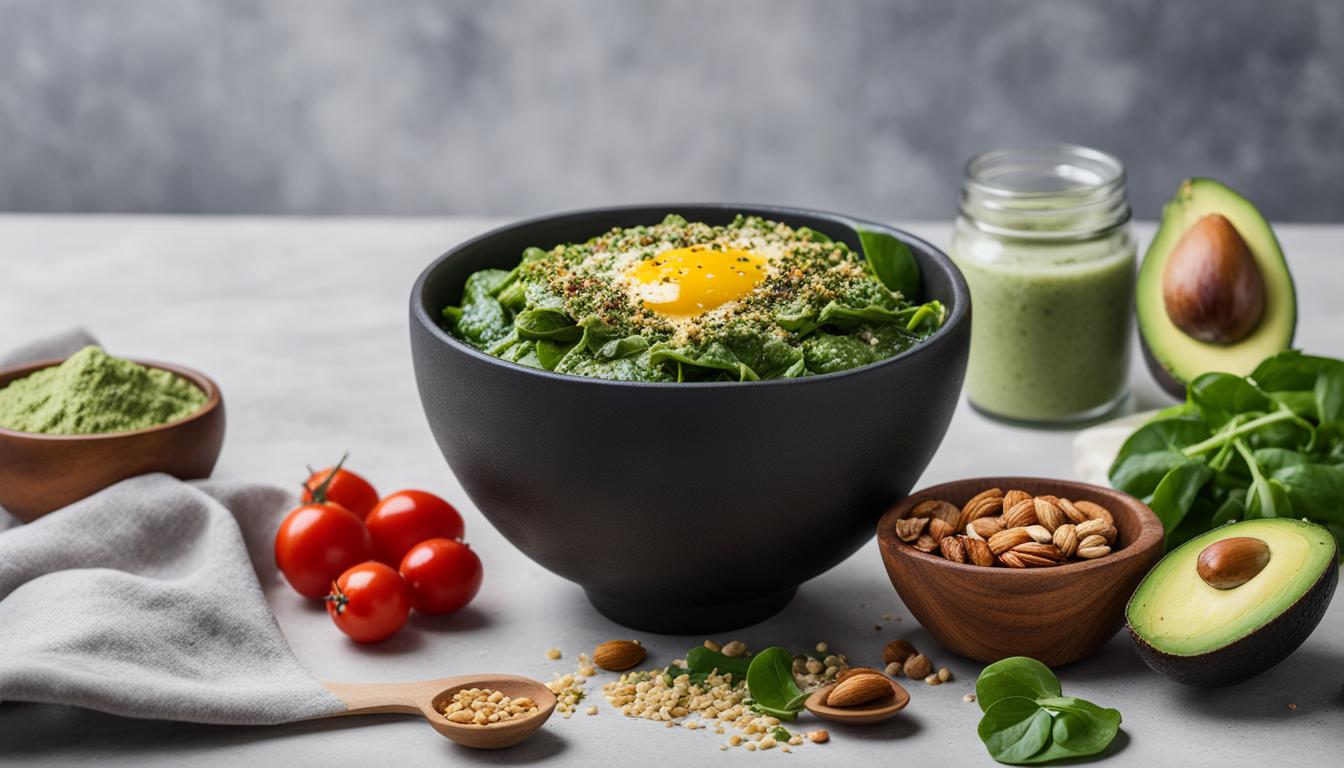Is Xylitol Keto-Friendly? Discover the Sweet Truth About Xylitol and Its Role in the Low-Carb Lifestyle!
Is Xylitol Keto-Friendly? Discover the Sweet Truth About Xylitol and Its Role in the Low-Carb Lifestyle!
Welcome to our sweet and informative journey where we unravel the truth about xylitol and its relationship with the ketogenic diet. If you’ve been on the lookout for a sugar substitute that’s keto-friendly, you might have stumbled upon the rising star known as xylitol. Let’s delve into what xylitol is and why it’s gaining popularity among those following a low-carb lifestyle.
What is Xylitol?
Xylitol is a naturally occurring alcohol found in most plant material, including many fruits and vegetables. It has a similar sweetness to sugar but with fewer calories and a lower glycemic index, making it an attractive alternative for those looking to reduce their carbohydrate intake. Xylitol has been approved for use in many countries as a food additive and sweetener.
Xylitol and the Keto Diet
So, is xylitol keto-friendly? Absolutely! Its low carbohydrate content and minimal impact on blood sugar levels make xylitol a popular choice for individuals following the ketogenic diet. As more people embrace the keto lifestyle, the use of xylitol as a sugar substitute has gained momentum, offering a way to satisfy sweet cravings without derailing ketosis.

What is Xylitol?
Xylitol is a natural sugar alcohol that is commonly used as a sweetener in many food products. It is found in small amounts in fruits and vegetables but is commercially produced from plants such as birch and beech trees. Xylitol looks and tastes like sugar but has fewer calories and a lower glycemic index compared to regular sugar.
Research has shown that xylitol is absorbed more slowly in the digestive system, causing a lower and more gradual increase in blood sugar and insulin levels. This makes it a popular choice for those following a low-carb or ketogenic lifestyle. In fact, due to its low glycemic index, xylitol is considered keto-friendly.
Is Xylitol Keto-Friendly? Discover the Sweet Truth About Xylitol and Its Role in the Low-Carb Lifestyle!
Xylitol and the Keto Diet
So, you’ve decided to embark on the exciting journey of the ketogenic diet, but you’re not quite ready to give up the sweetness in your life. Here’s where xylitol comes into play. But is xylitol keto-friendly? Let’s delve into the sweet truth about this sugar substitute and its compatibility with the ketogenic lifestyle.
Xylitol is a sugar alcohol that is commonly used as a sugar substitute. Its impact on blood sugar levels is minimal, making it an excellent choice for those following a keto diet. Xylitol contains fewer carbs and has a lower glycemic index compared to regular sugar, which means it’s less likely to cause a spike in blood sugar levels. This makes it a great option for those aiming to maintain ketosis while still satisfying their sweet tooth.
When used in keto recipes, xylitol can replace sugar on a one-to-one basis. Whether you’re baking keto-friendly brownies or whipping up a sugar-free cheesecake, xylitol can bring the sweetness without derailing your low-carb lifestyle.
So, to answer the burning question – yes, xylitol is indeed keto-friendly and can be a valuable ally as you navigate the sweet side of the ketogenic diet.
Is Xylitol Keto-Friendly on a Ketogenic Diet?
Benefits of Xylitol on Keto
Let’s dive into the potential benefits of using xylitol on a keto diet. First off, xylitol is a natural sweetener that can satisfy your sweet cravings without jeopardizing ketosis. With a low glycemic index, it has minimal impact on blood sugar levels, making it a suitable option for those following a keto lifestyle. This means you can still enjoy a touch of sweetness in your beverages and treats without disrupting your body’s fat-burning state.
Moreover, xylitol has been applauded for its positive impact on dental health. Research suggests that it can help combat the bacteria responsible for tooth decay and reduce the risk of cavities. It’s like a win-win situation – you get to indulge in sweetness while potentially promoting your dental well-being.
So, if you’re wondering whether xylitol is keto-friendly, the answer is a resounding yes. It offers a sweet solution to your keto journey without knocking you out of ketosis and possibly offers dental benefits along the way.
Drawbacks of Xylitol on Keto
While xylitol is a popular sweetener in the keto community, it’s important to be mindful of its drawbacks and potential considerations, especially when used in high amounts.
One of the main drawbacks of xylitol is its potential gastrointestinal effects. Some individuals may experience digestive issues such as bloating, gas, or diarrhea when consuming large quantities of xylitol. This is because xylitol is incompletely absorbed in the digestive system and can have a laxative effect when consumed in excess.
Moreover, overconsumption of xylitol can be a concern. Although it has a low glycemic index and doesn’t spike blood sugar levels, consuming large amounts of xylitol may still impact overall carbohydrate intake. This is especially important for individuals following a strict ketogenic diet where every gram of carbohydrate counts.
It’s crucial to note that while xylitol can be a beneficial sweetener for those following a keto lifestyle, moderation is key. Being mindful of portion sizes and monitoring individual tolerance is essential to avoid any potential negative effects on gut health and carbohydrate consumption.
Overall, when used in moderation, xylitol can be a great addition to a keto diet, but it’s important to be aware of potential drawbacks and to listen to your body’s response when consuming products containing this sweetener.

Is Xylitol Keto Friendly: Xylitol vs. Other Sweeteners on Keto
When diving into the world of sweeteners on the keto diet, you’ll likely come across xylitol, erythritol, and stevia. Let’s compare these popular choices and see how they stack up. Each sweetener has its own advantages and disadvantages, so let’s break it down in terms of taste, digestibility, and impact on blood sugar.
Xylitol
Xylitol is a sugar alcohol that is commonly used as a sweetener. It has a similar sweetness to sugar, making it an easy swap in recipes. While xylitol does have some carbohydrates, it has a minimal impact on blood sugar levels, making it a popular choice for those on a keto diet. However, it’s worth noting that consuming large amounts of xylitol can cause digestive issues in some people.
Erythritol
Another common sugar alcohol, erythritol, is known for being almost entirely indigestible, which means it has zero net carbs and zero glycemic impact. It also doesn’t cause digestive upset like some other sugar alcohols. However, some people find that it has a cooling sensation when consumed in large amounts.
Stevia
Stevia, a natural sweetener derived from the leaves of the stevia plant, has gained popularity for its sweetness without any impact on blood sugar levels. It is also calorie-free, making it appealing for those on a keto diet. Some people find that it has a slightly bitter aftertaste, especially in higher concentrations.
When it comes to taste, it’s important to note that individual preferences vary widely. While some people may enjoy the taste of one sweetener, others may not. Therefore, experimenting with each sweetener and finding what works best for you is key.
In conclusion, all three sweeteners have their own pros and cons. Xylitol and erythritol are both sugar alcohols with minimal impact on blood sugar, while stevia is a natural, calorie-free option. When choosing a sweetener for your keto lifestyle, consider taste, digestibility, and any potential impact on blood sugar levels based on your individual needs and preferences.
Incorporating Xylitol into the Keto Lifestyle
Xylitol is a fantastic sugar substitute that can easily be incorporated into a keto lifestyle. Here are some simple tips to help you make the most of this sweetener while staying in line with your low-carb goals:
Product Recommendations
Look for high-quality xylitol products that are derived from birch trees rather than corn, as the birch-derived xylitol is considered to be more natural and free from GMOs. Some reputable brands include XyloBurst, NOW Foods, and Smart Sweet.
Recipe Ideas
Swap out sugar with xylitol in your favorite keto dessert recipes such as cheesecakes, fat bombs, and keto-friendly ice creams. Additionally, you can use it to sweeten beverages like coffee, tea, and keto-friendly smoothies. You can also make a delicious sugar-free berry jam using xylitol.
Dosage Guidelines for Safe Consumption
It’s advised to consume xylitol in moderation. The FDA has established that up to 92 grams of xylitol per day is safe for a person weighing 132 pounds. However, overconsumption of xylitol can lead to digestive issues, so it’s best to start with small amounts and gradually increase over time.
By following these tips, you can easily incorporate xylitol into your keto lifestyle without compromising your low-carb goals. Remember to always check the product labels and consult with a healthcare professional if you have any concerns.
Conclusion
After delving into the world of xylitol, it’s evident that this sugar alcohol can be a fitting addition to a ketogenic lifestyle when used judiciously and in harmony with individual health objectives. Xylitol possesses a minimal impact on blood sugar levels, making it a desirable alternative to traditional sugar. The sweetener’s low glycemic index and calorie count align well with the principles of the keto diet.
While it’s important to note that excessive consumption of xylitol may lead to digestive discomfort in some individuals, moderate and mindful use can still offer a world of sweetness without derailing ketosis. Embracing xylitol within the boundaries of an individual’s keto goals can open up a realm of guilt-free indulgence, allowing for the creation of delectable treats and satisfying desserts.
Research has also shown that using xylitol in place of sugar can promote dental health by reducing the risk of cavities and dental decay. This sweetener’s potential to combat harmful oral bacteria, coupled with its keto-friendly attributes, makes it a compelling choice for those on a low-carb journey.
So, to answer the burning question, “Is xylitol keto-friendly?”—the resounding answer is yes, if used responsibly and in alignment with personal health goals. It’s about relishing the sweetness while maintaining the essence of the ketogenic lifestyle. Embracing xylitol in moderation may just pave the way for a more sustainable and enjoyable path on the low-carb journey.


